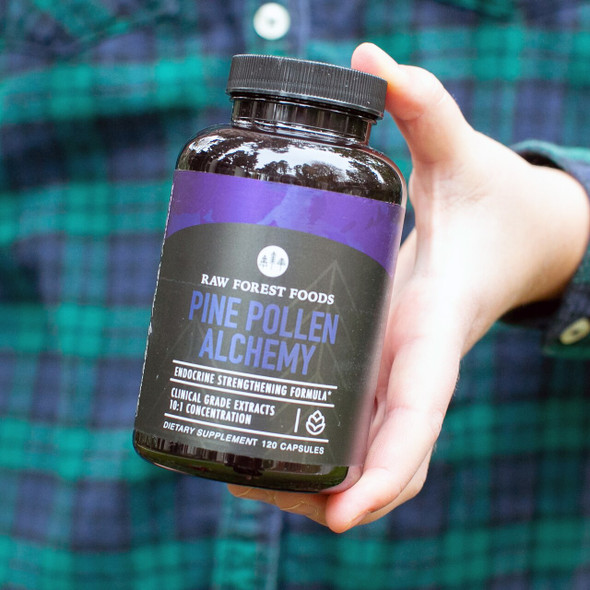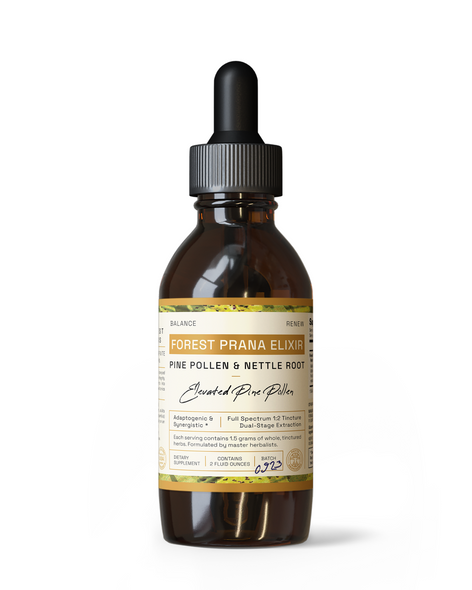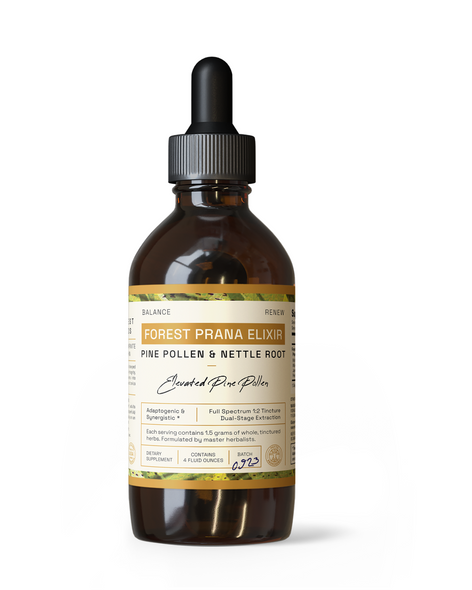Description: Codonopsis, also known as Dang Shen, is traditionally used in Classical Chinese Medicine (CCM) to nourish Bloodand support energy levels without causing overstimulation. It is often used as a gentler substitute for ginseng in tonics that strengthen Qi.*
Ethnobotanical Tradition: Classical Chinese Medicine (CCM). Traditionally valued for its ability to strengthen Qi and nourish Blood, Dang Shen is a popular choice in formulas where a milder action than ginseng is desired.*
Parts Used: Root.
Role in Formula: As an Associate (Chen) Herb (臣药 Chén Yào), Codonopsis enhances energy and supports the generation of Blood, making it an essential tonic for Qi and vitality.*
Description: Astragalus Root, or Huáng Qí, is traditionally used in Classical Chinese Medicine (CCM) as a longevity tonic and adaptogen. It is renowned for strengthening Wei Qi (defensive Qi) and enhancing overall vitality and immune function.*
Ethnobotanical Tradition: Classical Chinese Medicine (CCM). Traditionally employed to fortify the body’s defenses and promote vitality, Huáng Qí is a key herb in formulas designed for immune support and longevity.*
Parts Used: Root.
Role in Formula: As an Associate (Chen) Herb (臣药 Chén Yào), Astragalus Root enhances vitality and reinforces immune resilience, supporting long-term well-being.*
Description: Dang Gui is a key herb in Classical Chinese Medicine (CCM), traditionally used to build Blood and support blood circulation. It is particularly valued for its role in regulating menstruation and promoting the healthy flow of Qi and Blood.*
Ethnobotanical Tradition: Classical Chinese Medicine (CCM). Renowned for nourishing Blood and promoting circulation, Dang Gui is commonly used in formulas that support women’s health and relieve blood stagnation.*
Parts Used: Root.
Role in Formula: As an Associate (Chen) Herb (臣药 Chén Yào), Dang Gui promotes blood circulation, alleviates stagnation, and supports the formula’s blood-nourishing properties.*
Description: Bai Shao is traditionally used in Classical Chinese Medicine (CCM) to harmonize the Liver, nourish Blood, and preserve Yin. It is often included in formulas to balance warming or Yang-tonifying herbs.*
Ethnobotanical Tradition: Classical Chinese Medicine (CCM). Bai Shao is a blood-nourishing herb that also soothes the Liver and preserves Yin, helping balance more stimulating herbs in a formula.*
Parts Used: Root.
Role in Formula: As an Assistant (Zuo) Herb (佐药 Zuǒ Yào), Bai Shao balances and harmonizes the formula, protecting Yin and ensuring a gentle overall effect.*
Description: Chuan Xiong is a well-known herb in Classical Chinese Medicine (CCM), used to invigorate Blood and promote the movement of Qi. It is commonly employed to alleviate pain associated with blood stasis.*
Ethnobotanical Tradition: Classical Chinese Medicine (CCM). Known for its ability to promote blood circulation and relieve blood stagnation, Chuan Xiong is often used to address pain caused by stagnation.*
Parts Used: Rhizome.
Role in Formula: As an Assistant (Zuo) Herb (佐药 Zuǒ Yào), Chuan Xiong invigorates Blood, enhances circulation, and increases the overall efficacy of the formula.*
Description: Stinging Nettle Root is widely used in Western Herbalism to support male reproductive health. It is commonly employed in modern herbalism for its potential benefits in hormonal support and prostate health.*
Ethnobotanical Tradition: Western Herbalism. Traditionally used for its benefits in reproductive health, particularly in supporting male vitality and prostate health.*
Parts Used: Root.
Role in Formula: As an Assistant (Zuo) Herb (佐药 Zuǒ Yào), Stinging Nettle Root supports reproductive health and contributes to the formula’s overall vitality-enhancing properties.*
Description: Tribulus is traditionally used in both Classical Chinese Medicine (CCM) and Ayurveda to support male reproductive health and act as a tonic for the Liver and Kidneys. It is valued for its effects on vitality and hormone regulation.*
Ethnobotanical Tradition: Classical Chinese Medicine (CCM), Ayurveda. Utilized in both systems for its tonic effects on the Liver, Kidneys, and reproductive health.*
Parts Used: Fruit.
Role in Formula: As an Assistant (Zuo) Herb (佐药 Zuǒ Yào), Tribulus supports reproductive health and enhances vitality, contributing to the formula’s overall strengthening effects.*
Description: Chinese Ginseng Root, or Rén Shēn, is a premier adaptogen and Qi tonic in Classical Chinese Medicine (CCM). It is traditionally used to strengthen the body, increase energy, and support overall health and resilience.*
Ethnobotanical Tradition: Classical Chinese Medicine (CCM). Ginseng is renowned for its Qi tonifying properties and its use as a restorative adaptogen to promote vitality and endurance.*
Parts Used: Root.
Role in Formula: As an Assistant (Zuo) Herb (佐药 Zuǒ Yào), Chinese Ginseng provides adaptogenic support and strengthens Qi, enhancing the body’s resilience to stress.*
Description: Cordyceps is traditionally used in Classical Chinese Medicine (CCM) as a tonic to support vitality and tonify the Lungs and Kidneys. It is known for enhancing stamina, endurance, and overall vitality.*
Ethnobotanical Tradition: Classical Chinese Medicine (CCM). Cordyceps is known for its ability to tonify the Lungs and Kidneys, making it a key herb for improving energy and vitality.*
Parts Used: Fungus (fruiting body).
Role in Formula: As an Assistant (Zuo) Herb (佐药 Zuǒ Yào), Cordyceps supports vitality, enhances stamina, and improves the overall efficacy of the formula.*
Description: Green Citrus Peel, or Chén Pí, is commonly used in Classical Chinese Medicine (CCM) to regulate Qi flow, harmonize the middle Jiao, and prevent stagnation in the digestive system.*
Ethnobotanical Tradition: Classical Chinese Medicine (CCM). Known for its ability to promote Qi movement and prevent stagnation, Chén Pí helps balance and harmonize the digestive processes.*
Parts Used: Peel.
Role in Formula: As an Envoy (Shi) Herb (使药 Shǐ Yào), Green Citrus Peel promotes Qi flow, prevents stagnation, and harmonizes the overall actions of the formula.*



































